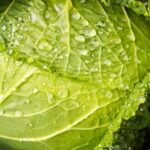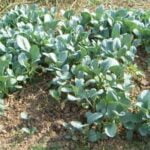Repels All is a popular repellent used in gardening to ward off pests and protect plants. When it comes to vegetable gardens, it’s crucial to ensure that the products used are safe for consumption. This raises the question: is Repels All safe for vegetable gardens? In this article, we will explore the safety and effectiveness of Repels All in vegetable gardens, as well as alternative options available.
Using safe repellents in vegetable gardens is essential for maintaining the health and quality of the produce. Repels All is a trusted brand that many gardeners turn to for protection against pests. Understanding what Repels All is, how it works, and its common uses in gardening will provide insight into its potential safety for vegetable gardens.
The safety of using products like Repels All in vegetable gardens cannot be overstated. Harmful chemicals can pose risks to both human health and the environment. Therefore, it is important to weigh the potential risks of using such repellents in vegetable gardens and explore safer alternatives. In the following sections, we will delve into research, studies, reviews from experts, and practical applications of Repels All in vegetable gardens to determine its safety and effectiveness.
Understanding Repels All
Repels All is a popular natural pest repellent that is widely used in gardening. It is made from all-natural ingredients and is safe for the environment, making it an ideal choice for those looking to protect their vegetable gardens from pests without using harmful chemicals. Understanding how Repels All works and its common uses in gardening can help gardeners make informed decisions about using this product.
What Is Repels All?
Repels All is a natural pest control product that is designed to deter a wide range of animals including deer, rabbits, squirrels, and more. It works by emitting an unpleasant odor and taste that repels pests without causing them harm. This makes it a humane alternative to traditional pest control methods.
How Does It Work?
Repels All works by creating a barrier of protection around plants, flowers, and vegetables in the garden. When pests come into contact with the treated area, they are repelled by the scent and taste of the product, preventing them from causing damage to the garden. This non-toxic approach makes Repels All safe for use around children, pets, and wildlife.
Common Uses of Repels All in Gardening
Gardeners commonly use Repels All to protect their vegetable gardens from animals that may cause damage to crops. It can be applied directly to plants or as a perimeter treatment around the garden area. Additionally, Repels All can also be used on ornamental plants and flowers to prevent damage from browsing animals. Overall, understanding how Repels All works allows gardeners to effectively utilize this natural repellent for protecting their gardens while promoting environmental safety.
Safety in Vegetable Gardens
When it comes to using repellents in vegetable gardens, ensuring the safety of the products is paramount. Using harmful chemicals or repellents can not only affect the health of your plants but also pose a risk to anyone consuming the vegetables. This is where Repels All comes in as a safe and effective solution for keeping pests at bay without compromising the safety of your vegetable garden.
Repels All is a non-toxic, eco-friendly repellent that is safe to use in vegetable gardens. It is made from natural ingredients, making it an ideal choice for those looking to protect their plants without introducing harmful substances into the garden ecosystem. The organic nature of Repels All ensures that it does not leave behind any harmful residues on the vegetables or soil, providing peace of mind for gardeners who are conscious about what they are consuming.
In addition to being safe for the plants and produce, Repels All is also safe for beneficial insects that contribute to pollination and overall garden health. This means that you can protect your vegetable garden from pests without disrupting the delicate balance of your garden’s ecosystem. So, for those wondering “is Repels All safe for vegetable gardens?” rest assured that this natural repellent is indeed a safe and environmentally friendly choice for keeping your vegetables protected from unwanted pests.
| Repellent Features | Repels All |
|---|---|
| Non-toxic | Yes |
| Eco-friendly | Yes |
| Safe for beneficial insects | Yes |
Is Repels All Safe for Vegetable Gardens?
Repels All is a natural repellent that is used to deter various types of pests and animals from damaging plants in gardens. It is made from a combination of natural ingredients, including putrescent egg solids, garlic, and cloves. This makes it a safe option for use in vegetable gardens as it does not contain any toxic chemicals that can harm plants or contaminate the vegetables grown within the garden.
One of the key aspects of Repels All is that it is non-toxic and eco-friendly, making it suitable for use in areas where food is being grown. The product works by emitting an odor that repels pests such as deer, rabbits, squirrels, and other animals that may feed on vegetable plants. This acts as a deterrent to keep these creatures away from the garden without causing them any harm.
Gardeners and experts have reported positive experiences with using Repels All in their vegetable gardens. It has been proven effective in protecting crops from various pests without posing any risks to the vegetables or the environment.
Additionally, its easy application and long-lasting effects make it a convenient choice for gardeners looking for a safe repellent option. Overall, Repels All is indeed safe for use in vegetable gardens and provides an effective solution for pest control without compromising the safety of the produce.
- Non-toxic and eco-friendly
- Proven effective by gardeners and experts
- Safe for both vegetables and the environment
Benefits of Using Repels All in Vegetable Gardens
Using Repels All in vegetable gardens offers a range of benefits for gardeners looking to protect their plants from pests in a safe and eco-friendly manner. Here are some of the key advantages of using Repels All in your vegetable garden:
- Effective pest control: Repels All is known for effectively repelling a wide range of pests, including deer, rabbits, squirrels, and other animals that may damage vegetable plants. This can help protect your garden from potential harm and keep your crops safe.
- Non-toxic formula: Unlike many traditional pest repellents, Repels All is made from natural ingredients and does not contain harmful chemicals. This makes it a safe option for use in vegetable gardens, as it poses no risk to the health of humans or animals.
- Eco-friendly solution: In addition to being non-toxic, Repels All is also environmentally friendly. It does not harm the soil or water supply, making it a responsible choice for gardeners who are conscious of the impact their gardening practices have on the environment.
Overall, using Repels All in your vegetable garden can provide effective protection against pests while maintaining the safety and integrity of your garden’s ecosystem.
When applying Repels All in your vegetable garden, it’s important to follow proper application methods to ensure its effectiveness and safety:
- Apply the repellent according to the instructions on the packaging, ensuring that you cover all areas of the garden that need protection.
- Avoid applying Repels All directly onto edible parts of plants to prevent any transfer of taste or odor to harvested vegetables.
- Reapply the repellent as necessary, especially after heavy rain or if new plant growth occurs, to maintain its effectiveness throughout the growing season.
By following these guidelines and considering the benefits of using Repels All in your vegetable garden, you can enhance your pest control efforts while keeping your garden safe and healthy.
Application of Repels All in Vegetable Gardens
Repels All is a safe and effective repellent that can be used in vegetable gardens to protect crops from a variety of pests. Its natural ingredients make it an attractive option for those looking to avoid harmful chemicals in their garden. When applying Repels All, there are some key methods and considerations to keep in mind to ensure maximum effectiveness.
One important aspect of using Repels All in vegetable gardens is the proper application method. It is recommended to apply the repellent evenly across the entire garden area, taking care to cover the leaves, stems, and soil around the plants. This will create a protective barrier that deters pests from approaching the crops without causing harm to the vegetables themselves.
Dos and don’ts when using Repels All are crucial to consider as well. It is important not to oversaturate the plants with this product as it may lead to an unpleasant odor. Additionally, it is best to reapply after heavy rain or if significant time has passed since the initial application. These practices will ensure that Repels All remains effective in repelling pests without causing any negative impact on the vegetable garden.
| Proper Application | Dos and Don’ts |
|---|---|
| Apply evenly across garden area | Avoid oversaturation of plants |
| Cover leaves, stems, and soil around plants | Reapply after heavy rain or over time |
Alternatives to Repels All for Vegetable Gardens
When looking for alternatives to Repels All for vegetable gardens, it’s important to consider other safe and effective repellents that can protect your plants from pests without causing harm. There are several options available that offer natural and eco-friendly solutions for keeping unwanted critters away from your vegetables.
Natural Oils
One alternative to Repels All is the use of natural oils such as neem oil, peppermint oil, or garlic oil. These oils are known for their insect-repelling properties and can be safely used in vegetable gardens to deter pests. Neem oil, in particular, is effective against a wide range of insects including aphids, caterpillars, and beetles. Peppermint oil is also effective at repelling ants, spiders, and even rodents.
Diatomaceous Earth
Diatomaceous earth is another safe alternative that is commonly used in organic gardening. This natural substance is made from fossilized diatoms and works by dehydrating insects upon contact. It is effective at controlling slugs, snails, and certain types of beetles without posing any harm to humans or the environment.
Beneficial Insects
Introducing beneficial insects into your vegetable garden can also serve as an alternative to using chemical repellents. Ladybugs, lacewings, and predatory mites are just a few examples of beneficial insects that feed on common garden pests such as aphids, thrips, and spider mites. By inviting these helpful insects into your garden, you can create a natural balance that reduces the need for chemical repellents altogether.
These alternatives provide safe and eco-friendly options for protecting your vegetable garden from pests without exposing it to harmful chemicals. When considering the most suitable option for your garden, it’s important to assess the specific pest problems you are facing as well as any potential impact on beneficial organisms or pollinators in your garden ecosystem.
Conclusion
In conclusion, it is evident that Repels All is a safe and effective option for protecting vegetable gardens from pests. Through research, studies, and reviews from gardeners and experts, it has been shown to be a non-toxic and eco-friendly product that can repel a wide range of animals without causing harm to the plants or the environment. This makes Repels All an ideal choice for those looking to protect their vegetable gardens without compromising on safety.
When considering the importance of using safe products in vegetable gardens, it is clear that Repels All fits the criteria for being environmentally friendly and non-harmful. With potential risks of using harmful repellents in vegetable gardens in mind, finding a safe alternative like Repels All becomes essential for maintaining a healthy garden ecosystem. Its ability to repel various pests while ensuring the safety of edible plants makes it an attractive option for gardeners.
For those looking to make use of Repels All in their vegetable gardens, it’s important to follow proper application methods and adhere to dos and don’ts recommended by experts. This will ensure that the product is used responsibly and effectively, maximizing its benefits without any adverse effects. Overall, when used correctly, Repels All can be a valuable tool for maintaining the health and productivity of vegetable gardens.
Frequently Asked Questions
Can You Use Repels-All on Vegetable Plants?
Yes, Repels-All can be used on vegetable plants. It is a natural animal repellent that is safe to use on edible plants. It effectively deters common garden pests such as deer, rabbits, and squirrels.
Does Repel All Harm Plants?
Repels-All does not harm plants when used according to the instructions. It is made from natural ingredients such as garlic, dried blood, and putrescent egg solids which are safe for plants. This makes it a gentle yet effective option for protecting your garden.
Is Repels-All Toxic?
Repels-All is not toxic to humans or pets when used as directed. The active ingredients in this animal repellent are all-natural and pose no harm to the environment or living beings when properly applied. It’s a safe choice for those looking to protect their plants without resorting to harmful chemicals.

If you’re looking to get into vegetable gardening, or are just looking for some tips on how to make your current garden better, then you’ve come to the right place! My name is Ethel and I have been gardening for years. In this blog, I’m going to share with you some of my best tips on how to create a successful vegetable garden.





